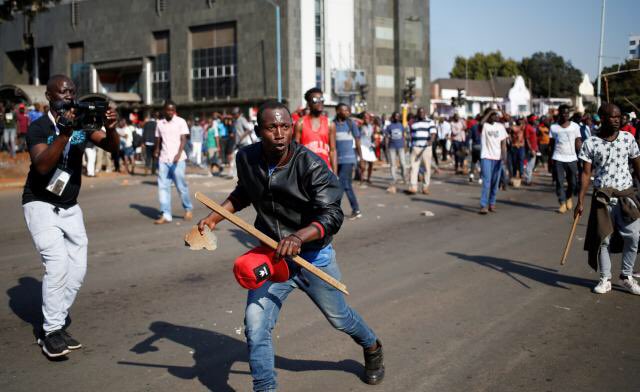Tendai Chimunda
Conversations with insiders suggest that the MDC has been agonising over whether or not to call for protests since the beginning of the year. That no decision has been reached on the matter speaks to the deep and widening differences among its leaders over the matter.
There is also growing dissonance among other stakeholders such as the business community and key players in the international community with regards the staging of anti-Government demonstrations.
Within the MDC, there are three noticeable schools of thought on the matter of protests. One school of thought has been arguing that the MDC should ride on the prevailing economic challenges and call for protests. This group points at the protests in Venezuela, Algeria, Sudan and Hong Kong as evidence that the world is in a protest season akin to that witnessed during the Arab Spring and the Colour Revolutions.
The opposing school of thought argues that the objective reality in Zimbabwe differs significantly from that in the aforementioned countries. They point at the fact that most Zimbabweans are either self-employed, employed in the informal sector or in small and medium enterprises. Such an employment demographic situation significantly diminishes the power of trade unions and dampens the appetite for protests and strikes. The anti-protest group of MDC thinkers also observes that the monetary and fiscal measures put in place by Government are beginning to bear fruit. Under such circumstances, they argue, citizens would wonder why a rational person would call for protests when things are getting better. This group of thinkers says that the MDC allowed the Goldilocks conditions (just right conditions in Alice in the Wonderland), to slip away and is now wanting to take action under “just wrong” conditions.
Insiders further observed that the MDC is a movement as the name suggests. It is an omnibus of political ideologies, and suffers a critical dearth of ideological coherence. Among its motley crew are leftists, who argue that the indecision over what course to take is the result of the capture of the MDC by the elite. This group argues that trying to cause people to strike in demand of the USD (US$) is nonsensical, since poor people hardly ever see the USD. The US$ is for the middle class and the elite, i.e. the top class lawyers and car dealers in the MDC.
Sources within the MDC also say senior party officials support re-dollarization as they are key players in the illegal foreign currency market and those smuggling of ex-Japanese vehicles for resale. They also observe that the MDC should have harnessed the now disappearing economic hardships to mobilise people into the streets. It is their view that the MDC failed to do that because “the elite” feared for their properties.
The leftists pointed out that “the elite” constitute the MDC leadership that owns very well stocked car sales businesses, haulage trucks, service stations and other businesses that would be exposed to grave risk in the event that the protests became chaotic. Protestors who would be drawn from numerous political platforms could easily wittingly and unwittingly attack the businesses of MDC officials. The leftists also observe that given the history of intra-party violence in the MDC, feuding factions may want to take advantage of the chaos to “fix” their rivals.
The MDC has a lot of thinking and internal consensus building to do. The lack of consensus on protests explains why the MDC is using the feeble and gullible #Tajamuka and the slightly more potent ZCTU as guinea pigs. If the guinea pigs fail, the MDC would escape the resultant embarrassment. In the event that the protests become chaotic, the MDC would emerge blameless as it would not be visibly behind the protests. However, if they succeed the MDC would promptly endorse them and hijack the protests before throwing the guinea pigs into the second class compartment of the revolution.




